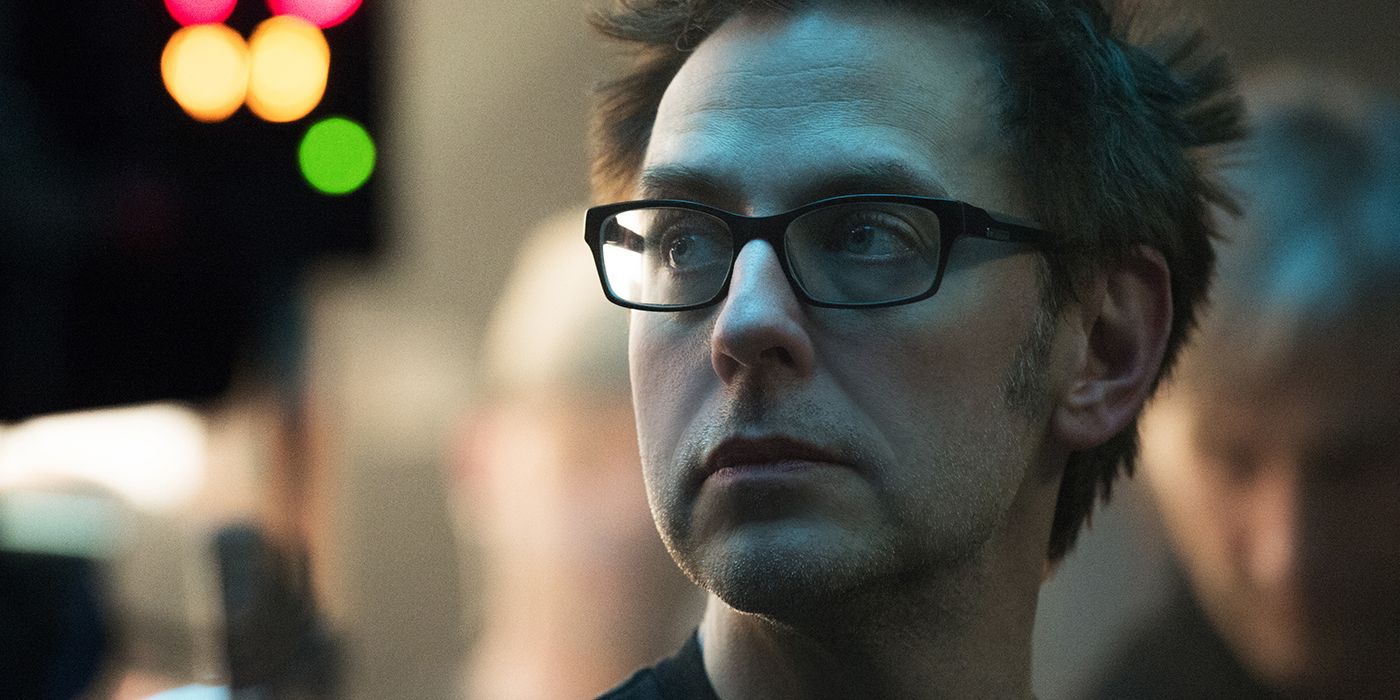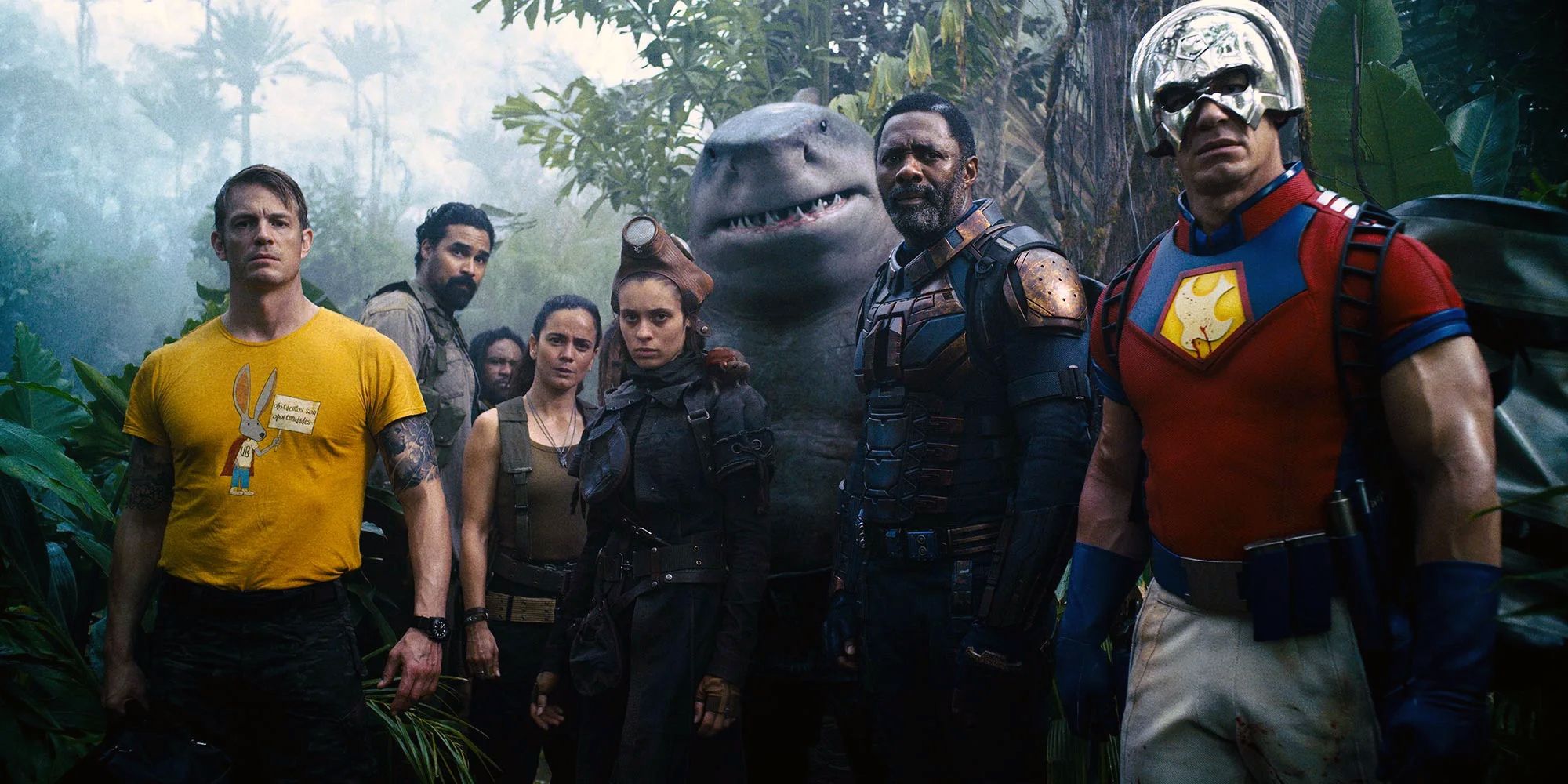In a move that nobody saw coming, this past Tuesday, world-renowned director and genre filmmaking fan favorite, James Gunn, was announced as the co-CEO over DC Studios, alongside mega producer Peter Safran. The two will oversee the company's film, animation, and TV projects, essentially giving DC two Kevin Feige-like figures.
It's an incredibly inspired and unexpected decision from Warner Bros. Discovery, but one that makes a lot of sense. With Gunn's two smash hit Guardians of the Galaxy movies at Marvel and acclaimed DC projects, The Suicide Squad and Peacemaker, the man has become an incredibly valuable asset in the world of comic book movies. With his recent directing credits, it's not entirely random that he would be put into this high of a position, but it's definitely a bit of a shock. All this to say, Gunn has not always held power in Hollywood or even the greater filmmaking world. He started out as a screenwriter working for the company Troma Entertainment - a period that would greatly go on to inform and set the tone for his works to come. Besides the value in Gunn's successful history of comic book filmmaking, his early years in the world of indie filmmaking could be more telling as to how he will co-lead DC from here on out.
His Indie Exploitation Roots
In the early 1990s, James Gunn was struggling to find his way into a creative career. He had gone to St. Louis University and graduated with a Bachelor of Arts, played in a band called The Icons, and eventually landed on his feet by working for indie film legend Lloyd Kaufman at Troma Entertainment. Here, he started out by writing the screenplay for Kaufman's film Tromeo and Juliet. This experience led to Kaufman acting as a mentor for Gunn, in which he would teach the young screenwriter the many steps of making your own movie outside of the mega studio system in Hollywood. Troma Entertainment is rooted in a sort of punk spirit, something that Gunn easily identified with already. It's a company that makes movies on the cheap and entirely in-house. Their output almost exclusively consists of wild, gonzo exploitation films across the action, horror, and comedy genres. Any time a filmmaker, writer, or artist in general helps make a movie at Troma, Kaufman champions them to do things their way and in a manner that they best see fit, an experience Gunn had in helping bring Tromeo and Juliet to the big screen. Even though Gunn would eventually move out of working with Troma Entertainment and into massive IP entertainment, the director would carry his independent punk spirit into every project that followed.
An Artist Who Works in His Own Lane
Gunn began directing his own films in the mid 2000s with the film Slither, eventually followed by 2010s Super. Both of these films have a flavor of Troma to them, just with a slightly bigger budget behind them. These projects led to Gunn being a familiar name for fans of genre movies, but it wouldn't be until he was announced as the director of Guardians of the Galaxy that he started getting loads of attention. Upon release, it was a smash success and changed the face of the MCU forever. Gunn was the first director to break out of the franchise's mold and make a film much more in his own voice as opposed to Marvel's.
After bringing a more extreme version of the Guardians tone to DC with The Suicide Squad and its HBO Max spinoff Peacemaker, it's clear that studios don't want to stand in the way of the man's storytelling. He is a singular artist who, even with hundreds of millions of dollars backing his films, still manages to get his Gunn-isms through clearly. Now, alongside Peter Safran, Gunn is at the top. With his recent massive promotion to co-CEO, he is easily one of the most powerful figures in the entertainment world, and if he treats it anything like his gargantuan entries in franchise entertainment, a new title won't change him as a creative thinker.
DC has had an interesting track record ever since the release of Zack Snyder's Man of Steel in 2013. Since that film's release, they've been a studio that has chased the intricate, interlocked shared universe style that Marvel popularized, only to scrap that approach a few years in. After the failure of the theatrically released version of Justice League, the studio loosened its grip on its filmmakers and the types of stories that they would tell within the comic book movie medium. Since then, it has basically been an anything goes environment. Gunn's own take on a Suicide Squad movie is about as loose of a sequel as one can be, taking its own direction away from what the original set out to do by not being too worried about fitting in its larger universe. The Shazam movies definitely take place in the DCEU, they just aren't in any rush to join in for some sort of team up movies with a character like Henry Cavill's Superman. Shoot, Todd Phillips' Joker is entirely in its own universe, completely separate from the one inhabited by Ben Affleck's Batman. Even now, there are literally three separate takes on Batman running in a theatrical capacity, being Affleck's, Keaton's, and Pattinson's, all taking place in separate multiverses (Pattinson's specifically not intertwining at all with Affleck and Keaton). This pivot by DC to throw everything at the wall and see what sticks has already been highly successful as it is, so with a franchise vet and creative force like James Gunn at the reins, things are about to get really interesting for the company.
What Audiences Can Expect
For a guy that has his roots in grimy exploitation cinema, James Gunn is an artist that has been given an insane amount of approval by the heads of big intellectual properties. The man has to be aware of how crazy it is that he is now one of the two heads at such a colossal film corporation as DC Studios. By running the place with Peter Safran, it's easy to bet that Gunn will run the more creative side of the studio's decision-making and Safran will have a heavier hand in its business lane. This will give Gunn more freedom than he's ever had as an artist, a trait that he will surely pass down to the artists that come to work for him. After having been mentored by Lloyd Kaufman and given as much freedom as he was to work in Troma Entertainment, it's almost guaranteed that he will provide the same leniency at DC. Sure, with DC's kind of money, things can't be as loose as they might be at the type of studio that makes films like The Toxic Avenger, but when you look at the bonkers choices that Gunn got away with in a big budget movie like The Suicide Squad, there's not that much of a night and day difference.
Being the type of director who has dealt with both sides of the coin, indie-exploitation and mega blockbuster, Gunn is likely to be sympathetic with those that come in to work for him. Working in the larger world of superhero franchise entertainment has to be incredibly daunting, especially with the amount of money on the line and all the big suits breathing down artists' necks. The good news is now James Gunn is one of those suits! And even though he won't be able to be a yes man in every way, his independent roots will surely guide DC into their loosest, most artist-friendly filmmaking era yet. While his films tend to lean further into comedy and action, he has an understanding and appreciation of the different tonal capacities that various characters occupy. It's unlikely that he will make everybody conform to his own style, or an in-house style at all. He's the type of comic book fan to understand that it wouldn't make sense for there to be a Superman story in the same tone as a Batman story, or even a Swamp Thing story. These are characters that audiences respond to best whenever they are written in their own specific tones, Gunn being the kind of guy that would know to lean into the right person for that character, not the right person to tell a Gunn-ian story. After all, that's what Lloyd Kaufman once did for him, all the way back in his early indie days.



.jpg)
